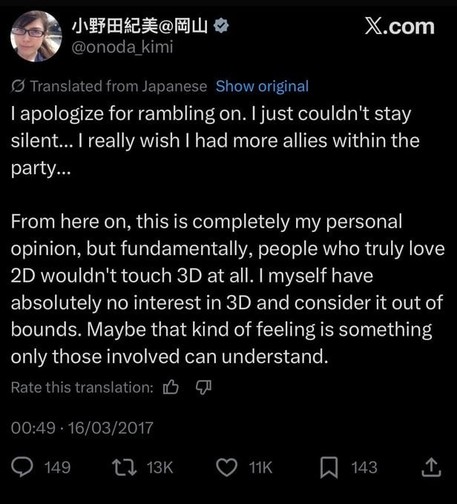2025-11-14 21:05:53
So I grew up next to #Chernobyl and this is, well, TERRIFYING.
A story for y’all: I’m from a city called Zhytomyr, 2 hours west of Kyiv in the North of #Ukraine. We were downwind of the Chernobyl #nuclear power plant when the 1986 disaster happened.
I wasn’t born for another 12 years, but my childhood was filled with stories and the aftermath of it all. Things like:
- My grandmother worked as a head doctor in a hospital and rehabilitation facility exclusively for children of Chernobyl victims to treat the extremely high prevalence of Tuberculosis and other severe health complications. (To specify: these were SECOND GENERATION of exposure).
- A lot of the kids in that facility were orphans, because their parents died young from health problems.
- My uncle’s wife was born in Pripyat. She was 1 year old when the disaster happened. Her parents were told to evacuate while given no information about what happened. They had to pack up their things and rush out to an unfamiliar city with their baby, never to see the rest of their belongings, apartment, or hometown again.
- When I was a kid, it became so common to see weirdly mutated animals and insects that even 2-3 year olds would make jokes about “Chernobyl mosquitos” and I wouldn’t even flinch seeing occasional giant bugs, dark frogs, weird-looking dogs.
- We’d frequently hear of nearby farms having issues with their animals being born too mutated to survive or random outbreaks from contaminated water / food. Crops would randomly fail. People would get poisoned on a regular basis. This all got less common as I grew up.
- My mother still remembers being a little girl, 10 years old, and looking outside from their balcony at the clouds blowing over from Chernobyl that day. People were told to not go outside and to shut all the windows, but not given an explanation as to why. My mother swears that the rain looked different. They weren’t able to go and buy more food for the kitchen for multiple days.
Anyway - nuclear safety isn’t a joke. I don’t understand how this level of carelessness can happen after Chernobyl and Fukushima.
https://www.404media.co/power-companies-are-using-ai-to-build-nuclear-power-plants/
2025-12-10 14:39:26
2025-11-01 23:34:29
For any of my comrades who are using SNAP, I wish I had something better to say than "if you crush 4 buckeyes with a hammer and tie the pulp in a sock you can wash a good sized load of laundry." English Ivy also has saponins, but I've never been able to make soap from it myself.
Ivy is everywhere. Buckeyes (Horse Chestnuts) are common in city parks (there are a ton in Seattle).
Yucca is also a good source of saponins, but it also has silica. That makes it a good scrubby soap. You can find these plants all over they're pretty common to find in yards.
If you can find acorns still (it's a bit late, but who knows), acorn grits are great and something you can survive on for a bit. Acorns need processing (it's easy to look up, but feel free to ask or check out one or Black Forager's videos on it).
If you've been following me for a bit, you probably already know all this. But if you don't, I hope it helps.
Any other forager folks are welcome to drop hints here that might be useful to folks in the city.
#Foraging
2026-01-06 17:36:48
you know, i had to physically get the stalker out of my house, but even after that there's some _choice_ feelings to be had when someone forwards you the stalker sending them the pictures from inside your home
2025-11-04 20:21:01
I find there is a lot of overlap between the following groups:
- people who are mission-driven and want to fight for a better future
- people who hate negotiation and think it makes them "selfish"
If you fall into those groups, please check out my negotiation tutorial. It is written specifically for YOU. 💖




